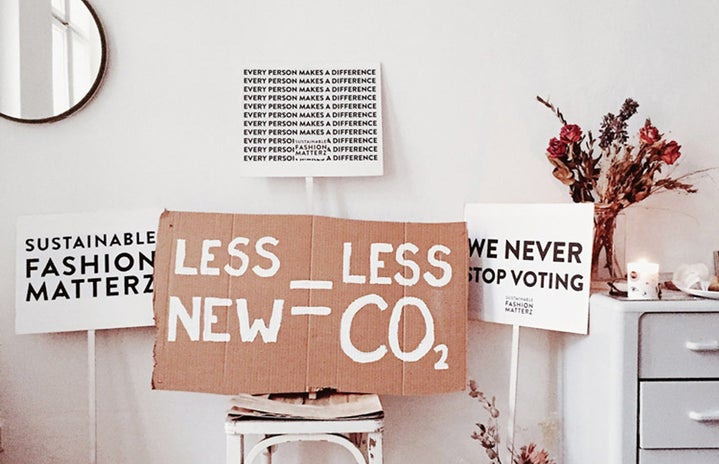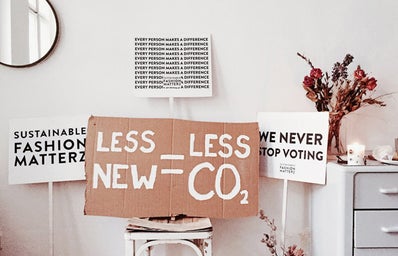Being green and eco friendly has almost become a trend now, with many fashion brands claiming that they are eco friendly, or even just have sustainable lines. Marketing themselves as sustainable appeals to more eco-aware customers, but it is actually known as greenwashing.
Greenwashing is when a company makes misleading claims about the business’ impact on the environment and tries to appear greener, according to Panaprium.
While they are claiming to be more sustainable, their activities are still having a detrimental impact on the planet.
This is most common in fast fashion brands, and a lot of the time you might not even realise it’s happening. Often, the brand might say the production is ‘green’ but hide everything else they do that isn’t. Other times, they might use labels that say ‘100% green’ without any proof or verification.
Greenwashing doesn’t just happen in the fashion industry, it can also appear in food, personal care, cars, electronics and more. In a study by TerraChoice Environmental Marketing, 98% of 2,219 products making green claims were greenwashing.
H&M have plans to only use recycled or sustainably sourced materials by 2030. They currently use circulose fabric, which is made of upcycled clothing and fashion waste. However, they have been accused of greenwashing because of these claims.
Boohoo brought out a wool coat, claiming it was ethical. But, wool is in no way ethical or environmentally friendly. Soon after this happened, they planned to ban all wool on their clothes as people called them out on it.
Penney’s or Primark launched a denim collection made of 100% sustainable cotton sourced in India and Pakistan. At a glance, this makes them appear as a green brand, however we can’t forget that they have low prices because they pay workers the bare minimum. This of course is highly unethical.
Many other brands such as & Other Stories, ASOS and Zara also claim to be sustainable when in reality only a small portion of their products are ethically sourced.
Of course, we don’t expect you to stop shopping at these stores completely. We do suggest that you do research into brands and approach sustainable claims with scepticism.
If you want to start shopping for more green clothes, be wary of companies who market themselves as sustainable and ethical as that often isn’t the case.



